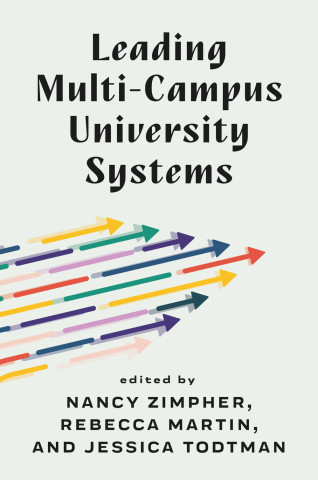
Book Details
Editor's Note
Introduction: AAUP Policies and Their Effective Use
1. Academic Freedom, Tenure, and Due Process
2. Defining Academic Freedom and Tenure
1915 Declaration of Principles on Academic Freedom
Editor's Note
Introduction: AAUP Policies and Their Effective Use
1. Academic Freedom, Tenure, and Due Process
2. Defining Academic Freedom and Tenure
1915 Declaration of Principles on Academic Freedom and Academic Tenure
1940 Statement of Principles on Academic Freedom and Tenure with 1970 Interpretive Comments
Freedom in the Classroom
The Freedom to Teach
The Assignment of Course Grades and Student Appeals
Committee A Statement on Extramural Utterances
Ensuring Academic Freedom in Politically Controversial Academic Personnel Decisions
3. Academic Freedom and Tenure in Specific Contexts
Academic Freedom and Outside Speakers
Statement on Professors and Political Activity
Academic Freedom and Artistic Expression
Academic Freedom and Electronic Communications
Access to University Records
Academic Freedom at Religiously Affiliated Institutions
On the Imposition of Tenure Quotas
Academic Freedom in the Medical School
Tenure in the Medical School
4. Academic Due Process
Recommended Institutional Regulations on Academic Freedom and Tenure
Statement on Procedural Standards in Faculty Dismissal Proceedings
Statement on Procedural Standards in the Renewal or Nonrenewal of Faculty Appointments
Standards for Notice of Nonreappointment
Access to Faculty Personnel Files
The Use and Abuse of Faculty Suspensions
5. College and University Government
Statement on Government of Colleges and Universities
On the Relationship of Faculty Governance to Academic Freedom
Protecting an Independent Faculty Voice
Faculty Participation in the Selection, Evaluation, and Retention of Administrators
The Role of the Faculty in the Accrediting of Colleges and Universities
The Faculty Role in the Reform of Intercollegiate Athletics
6. Professional Ethics
Statement on Professional Ethics
Statement on Plagiarism
Consensual Relations between Faculty and Students
7. Faculty Status
Recruitment and Appointment
Statement on Recruitment and Resignation of Faculty Members
The Ethics of Recruitment and Faculty Appointments
Affirmative-Action Plans
Verification and Trust
On Crediting Prior Service Elsewhere as Part of the Probationary Period
Senior Appointments with Reduced Loads
8. Contingent Appointments
Contingent Appointments and the Academic Profession
Tenure and Teaching-Intensive Appointments
On Full-Time Non-tenure-track Appointments
The Inclusion in Governance of Faculty Members Holding Contingent Appointments
Librarians and Academic Professionals
Joint Statement on Faculty Status of College and University Librarians
College and University Academic and Professional Appointments
9. Evaluation of Faculty Members
Statement on Teaching Evaluation
Observations on the Association's Statement on Teaching Evaluation
On Collegiality as a Criterion for Faculty Evaluation
Post-tenure Review
10. Faculty Work
Statement on Faculty Workload with Interpretive Comments
The Work of Faculty
Mandated Assessment of Educational Outcomes
Statement on Online and Distance Education
On Conditions of Employment at Overseas Campuses
11. Intellectual Property, Copyright, and Outside Funding
Statement on Intellectual Property
Statement on Copyright
Statement on Multiple Authorship
Statement on Conflicts of Interest
On Preventing Conflicts of Interest in Government-Sponsored Research at Universities
Statement on Corporate Funding of Academic Research
Recommended Principles for Faculty Handbooks and Collective Bargaining Agreements to Guide Academy-Industry Relationships
12. Budgets, Salaries, and Benefits
The Role of the Faculty in Budgetary and Salary Matters
The Role of the Faculty in Conditions of Financial Exigency
On Institutional Problems Resulting from Financial Exigency
Some Operating Guidelines
Governance Standards in Institutional Mergers and Acquisitions
Salary-Setting Practices That Unfairly Disadvantage Women Faculty
Statement of Principles on Leaves of Absence
Institutional Responsibility for Legal Demands on Faculty
13. Collective Bargaining
Statement on Collective Bargaining
Statement on Academic Government for Institutions Engaged in Collective Bargaining
Arbitration of Faculty Grievances
Arbitration in Cases of Dismissal
Dismissal Proceedings in a Collective Bargaining Setting Where Arbitration Substitutes for a Faculty Hearing
14. Work and Family
Statement of Principles on Family Responsibilities and Academic Work
Recommendations on Partner Accommodationand Dual-Career Appointments
15. Discrimination
On Processing Complaints of Discrimination
On Freedom of Expression and Campus Speech Codes
Sexual Harassment
Suggested Policy and Procedures for Handling Complaints
Campus Sexual Assault
Accommodating Faculty Members Who Have Disabilities
16. Students
Joint Statement on Rights and Freedoms of Students
Statement on Graduate Students
Statement on Intercollegiate Athletics
Appendix: Investigative Procedures of the Association
Association Procedures in Academic Freedom and Tenure Cases
Standards for Investigations in the Area of College and University Governance
Index


